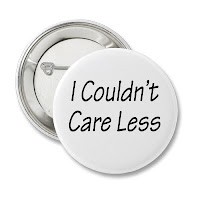telling family secrets
What is an ethics of care? To put yourself into the story, rather than to watch from the sides. There is a wonderful essay by Janet Eldred that explores this ethic of care and commitment in her discussion of her memories of growing up as her mother’s daughter, “Modern Fidelity.” Eldred probes the irony of feeling safe and “daughtered” by the visits and letters of her mother’s adulterous partner, Bernardo. Yet such irony gets set aside,as she moves to what really haunts her: her need even as she writes in retrospect for a loving rock/root, and her hope that Bernardo actually loved her mother even in the remnants of a forever sort of way. She faces the fact she wants a “love story” as part of her family history.and-finding safety in Eldred argues that our essays need on some level to be self stories, that we need to abandon distancing irony as a 20th-century voice and try now to make sense of the acute pain and challenges that face our daily effort at living– technologized lives being foremost amongst these.
Oddly similar in showing an ethic of care is Dave Eggers’ HWSG (Heartbreaking Work of Staggering Genius). How many “Daves” function in that story? I count at least three strong self-representations parcelled out tocharacters variously named (Dave, young “brother” /little boy Toph, suicidal/so sad John... ). It is a story about the fragmented/divided self, and how life forces a process of disintegration upon us.
While many have gasped at the self- and family- revelations, the book seems to be more about the urge to hide and protect family secrets and others. There is a lot of disguise in that book, for all the calls of the author to “look at me.” Always there, that twin tense urge–to show off and to keep secret.
Oddly similar in showing an ethic of care is Dave Eggers’ HWSG (Heartbreaking Work of Staggering Genius). How many “Daves” function in that story? I count at least three strong self-representations parcelled out tocharacters variously named (Dave, young “brother” /little boy Toph, suicidal/so sad John... ). It is a story about the fragmented/divided self, and how life forces a process of disintegration upon us.
While many have gasped at the self- and family- revelations, the book seems to be more about the urge to hide and protect family secrets and others. There is a lot of disguise in that book, for all the calls of the author to “look at me.” Always there, that twin tense urge–to show off and to keep secret.



Comments
Post a Comment